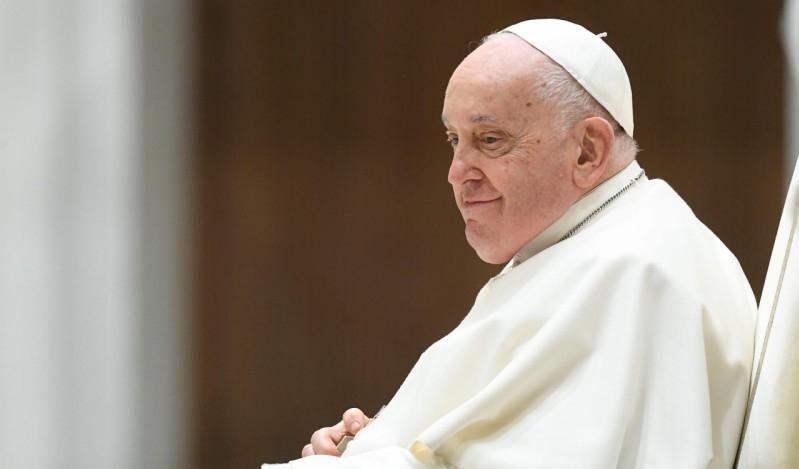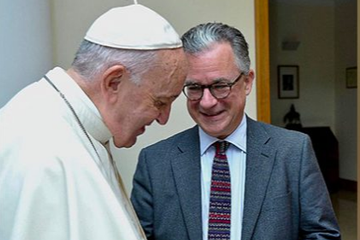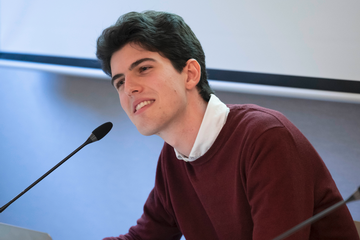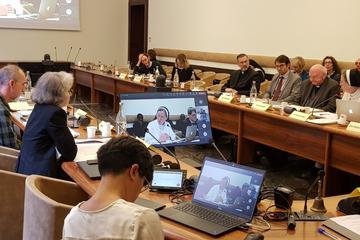
By Filipe Domingues
Pope of the poor, of migrants, of the imprisoned, the excluded, pope of mercy, of the environment, of the Amazon, of the people, of simplicity, of peace. Pope of the reforms, the “change of era”, the “polyhedral” vision, of the “economy of Francis,” the “tenderness of God” and the “joy of the Gospel.” Pope of discernment, evangelization, synodality.
Pope Francis celebrates the 10th anniversary of his pontificate this March 13. During this time, he managed to accumulate these and many other titles – it is even difficult to talk about everything he has done so far. Many have treated this milestone as the final phase of his pontificate. It's hard to know. At 86 years old, in good health and unwilling to resign, as he has said several times, Argentine Jesuit Jorge Mario Bergoglio may still be pope for a long time.
But what does he still want to do? Francis answered this question in an interview with the Argentine newspaper La Nacion, published on March 10: “I'm very realistic, I like to feel the touch of things. [I have] the desire to swim forward, to open doors. Opening doors, that pleases me a lot. Opening doors and walking the paths.” With that in mind, what path will his pontificate take from here?
‘The Church is not a business’
First, a note for context: As a man of governance, Francis is, above all, someone who initiated a series of processes in the Church. In his apostolic exhortation “Evangelii gaudium,” in 2013, he wrote that “time is superior to space” and, therefore, it is necessary to work always looking at the long term, “without the obsession of immediate results.”
The “dynamism of reality” must be faced with patience, giving time to processes. Pope Francis works a lot, maybe too much. He hardly takes days off; he knows the time he has at his disposal is not long. He also knows seeds planted today take time to grow. Most of the processes he started have yet to mature calmly.
The tendency, at this 10-year mark – which Pope Francis did not want to celebrate, as he prefers to avoid self-referential situations – would be to look back and take stock of what he has accomplished. However, he himself said in an interview with the Italian newspaper Il fatto quotidiano, published on March 12, that the one who will make this sort of assessment “is the Lord, whenever he wants.”
“The Church is not a business, nor is it an NGO, and the pope is not a delegated administrator, who at the end of the year must make ends meet. The Church belongs to the Lord. We are simply asked to humbly listen to his will and put it into practice,” he said. “You have to tune in with the Lord, not with the world.”
Pope Francis has given several interviews in recent weeks and celebrated a discrete and private Mass with cardinals on the morning of March 13.
More participation
Pope Francis believes the Church is always “on the way” and is therefore synodal. It is a path to be walked together, to be traveled between siblings in Christ, with mutual trust in unity, respecting differences. It is listening to one another. More than that, it is a spiritual process, listening to God's will. “The synodal path is the path that God expects from the Church of the third millennium,” he said.
A Church that is more participatory, more open and in tune with the signs of the times – as requested by the Second Vatican Council – lives communion and mission better. The principle of synodality, according to the theological commission of the current Synod (2021-2024), is “the action of the Spirit in the communion of the Body of Christ and in the missionary journey of the People of God.” In other words, the gifts of the Spirit come to all baptized believers "and are manifested in many ways, with equal dignity."
In practice, this means promoting the so-called “culture of encounter” within the Church – something that needs to extend beyond this pontificate. Pope Francis, who believes in and promotes this vision, is not always benevolently understood, and this was recognized by the Synod itself as a natural part of the synodal process.
In his message for the 56th World Communications Day, the pope wrote: “In the Church too there is a great need to listen and to listen to one another. It is the most precious and fruitful gift we can offer each other. We Christians forget that the service of listening has been entrusted to us by the one who is the listener par excellence and in whose work we are called to participate.”
The reforms continue
Ten years ago, in March 2013, Francis was elected to reform the Church – even in this he alludes to the saint of Assisi, St. Francis. The speech that convinced many cardinal electors that he would be the right man at the right time was delivered after Benedict XVI's resignation and before the conclave at the meetings, or general congregations, held among the cardinals in Rome as they prepared for the election of the new pope.
At that moment, the archbishop of Buenos Aires, Cardinal Bergolgio, who had traveled with a suitcase for a few days in Rome, said the Church, in order to evangelize, needed to renew its “apostolic zeal” and be an “outgoing Church.” The church needed to go out of its way and move toward the peripheries, “and not only the geographic peripheries, but also the existential ones.” The Church needed to be close to those who live “in sin, pain, injustice, ignorance and lack of faith” or any other form of misery, he said.
While some people knock on the door of the Church to enter and do not always find it open, “the self-referential Church has the pretense that Jesus Christ is inside, and does not let him out.” The “self-referential Church” believes it has its own light, instead of reflecting the light of Christ in the world, he said.
Since being elected, therefore, he has sought to put this vision into practice, starting with the reform of the Roman Curia, which he officially instituted a year ago with the apostolic constitution “Praedicate evangelium.” To reach this point, he created the Council of Cardinals (C9), fulfilling a demand that had been voiced prior to his election. The nine cardinals on the council assist the pope in governing the Church and, especially, in the reform of Vatican structures.
The reform continues. Francis says more needs to be done. He says the Roman Curia still works like a monarchical court – as if he were a king with absolute powers, who needs to be cajoled and sated – and that, in his words, “is a leprosy”, a disease in the heart of the Church. The reform of apostolic zeal must therefore place the Gospel at the centre of everything, and recognize the pope as bishop of Rome, successor of the Apostle Peter, a fisherman called by Christ to lead his own people.
Travel, documents, catecheses
So far, Pope Francis has made 40 apostolic trips, visiting 58 countries, in addition to 36 trips within Italy. He published three encyclicals, the first, “Lumen fidei,” written together with Benedict XVI, in 2013, and two others on his own: “Laudato si'” (2015) and “Fratelli tutti” (2020). His apostolic exhortations are also very important in punctuating his 10 years as pontiff: “Evangelii gaudium” (2013), “Amoris laetitia” (2016), “Gaudete et exsultate” (2018), “Christus vivit” (2019) and “Querida Amazonia” (2020).
At his Wednesday general audiences, he has carried out 13 cycles of catechesis on spiritual topics, on the Resurrection, the sacraments, on St. Joseph, the gifts of the Holy Spirit, the Church as the people of God, the family, mercy, hope, the “Our Father” and spiritual discernment, among other themes.
It is in these documents that he consolidates his thought and his teaching in history. It is in the catecheses that, as a pastor, he speaks directly to the faithful on the spiritual themes he believes are most relevant for them. He guides them in faith, and he plans to continue. On his 86th birthday in December, Pope Francis was asked about knee pain and his trouble walking. He good-naturedly replied: “One governs with their head, not with the knee.”
Going back in time, 10 years ago, in that speech to the general congregations before the conclave, he described who the new pope should be – without knowing that it would be him: “A man who, since the contemplation of Jesus Christ and from the adoration of Jesus Christ, may help the Church to go out of her way towards the existential peripheries, may help her to be a fruitful mother who lives the sweet and comforting joy of evangelizing.”


